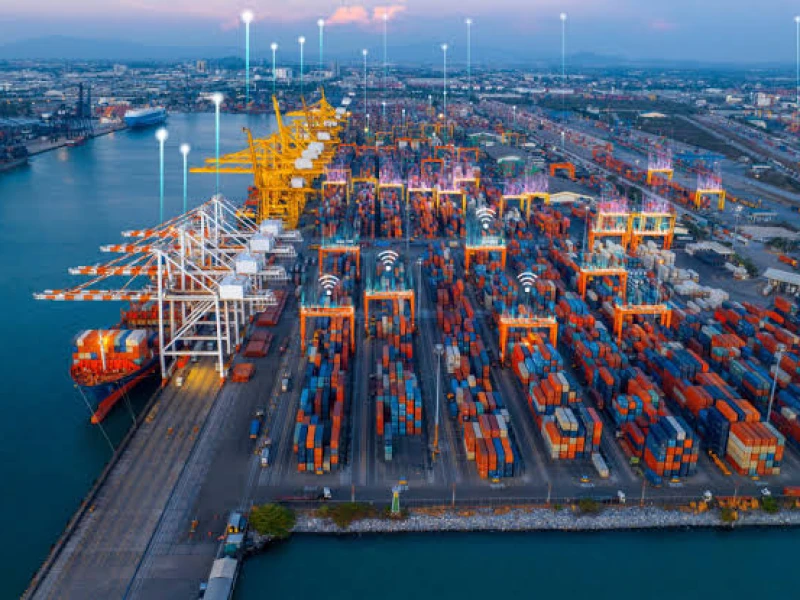Bangladesh is set to transform its port and logistics sector with a $550 million investment by Denmark’s APM Terminals, a wholly owned subsidiary of A.P. Møller – Maersk, for the development of the Laldia Container Terminal (LCT) at Chattogram Port, according to the Public-Private Partnership Authority (PPPA).
The project, implemented under a Public-Private Partnership (PPP) framework, is expected by PPPA to be the largest European foreign direct investment (FDI) in Bangladesh and one of the country’s largest PPP initiatives.
Under a 30-year concession agreement, with a possible extension tied to KPIs, APM Terminals, along with local equity partner QNS Container Services Ltd, will design, finance, build, and operate the terminal, while ownership will remain with the Chittagong Port Authority (CPA).
PPPA stated this arrangement will reduce the government’s capital expenditure burden while bringing global expertise and technology to Bangladesh’s port sector.
APM Terminals operates more than 60 terminals in 33 countries, including 10 of the world’s top 20 best-performing container ports.
PPPA noted that the company’s experience in East and South Asia will help modernize Bangladesh’s port operations, preparing the logistics sector for the post-LDC era.
The terminal, designed as a green port, will accommodate vessels twice the size of current ones, enable 24/7 operations with night navigation capabilities for the first time in Bangladesh, and provide direct shipping connectivity worldwide. Developed under a revenue-sharing concession model, PPPA said Laldia will generate a stable foreign-currency income stream while minimizing public capital expenditure.
According to PPPA projections, the project will add over 800,000 TEUs per year, relieving congestion at Chattogram’s existing container terminals and supporting Bangladesh’s growing trade volumes. Higher throughput and operational efficiency will increase CPA’s revenue through per-container charges, tax contributions from APM Terminals, and ancillary marine services.
The authority also highlighted employment benefits, stating the project will create 500–700 direct jobs and several thousand indirect opportunities in construction, trucking, warehousing, freight forwarding, and local SMEs.
PPPA added that internationally benchmarked health, safety, security, and environmental protocols will be implemented to improve workforce wellbeing, while advanced technology deployment will build local technical expertise.
PPPA said the terminal will reduce trade costs and improve delivery times for exporters and importers, particularly in sectors such as ready-made garments, agro-processing, and light engineering. APM Terminals’ in-house training programs will upskill engineers, technicians, and managers, while deployment of experienced personnel from other terminals will facilitate technology and process transfer.
The authority noted that LCT’s throughput will encourage private investment in inland container depots, cold chains, and industrial parks along Dhaka-Chattogram and other corridors. Energy-efficient equipment and climate-resilient infrastructure will reduce carbon emissions, support Bangladesh’s Nationally Determined Contributions (NDC) under the Paris Agreement, and attract climate-smart infrastructure investment.
PPPA said a successful long-term concession with a global operator such as APM Terminals will demonstrate Bangladesh’s ability to structure and oversee complex PPPs, reduce perceived investment risks, and catalyze additional PPP projects across energy, transport, and social infrastructure.
The project was formally inaugurated on Monday at a city hotel in a ceremony attended by top dignitaries from Bangladesh and Denmark, jointly organized by PPPA, CPA, and APM Terminals.


 Prev Post :
Prev Post :
